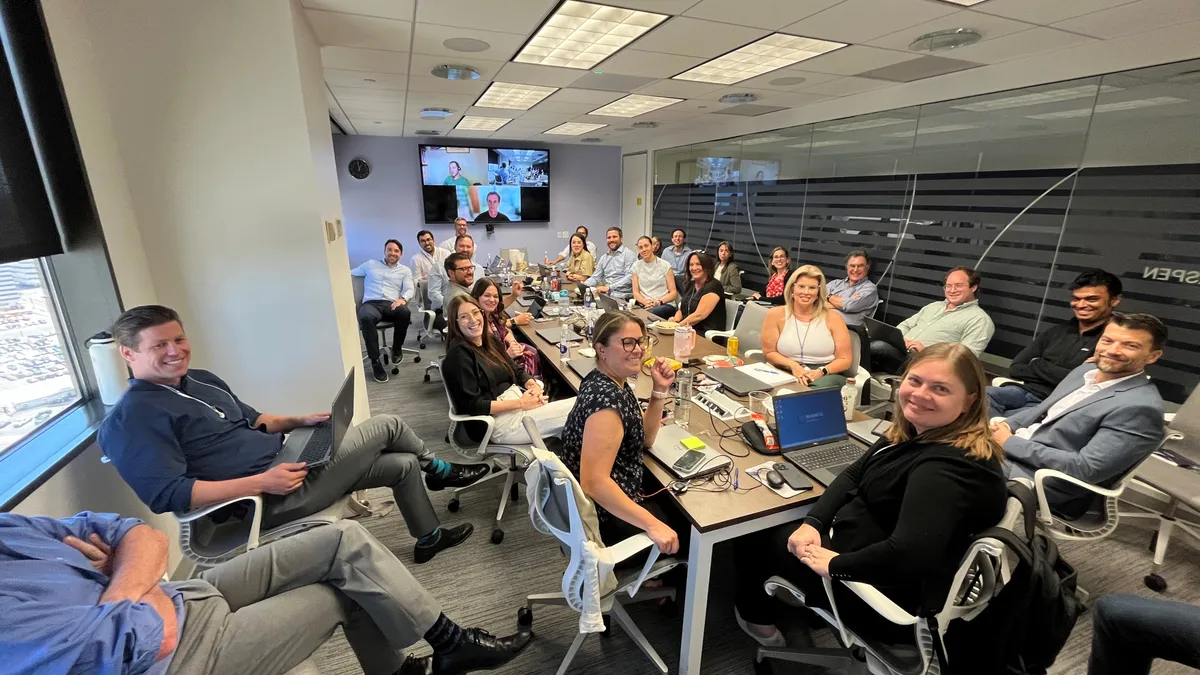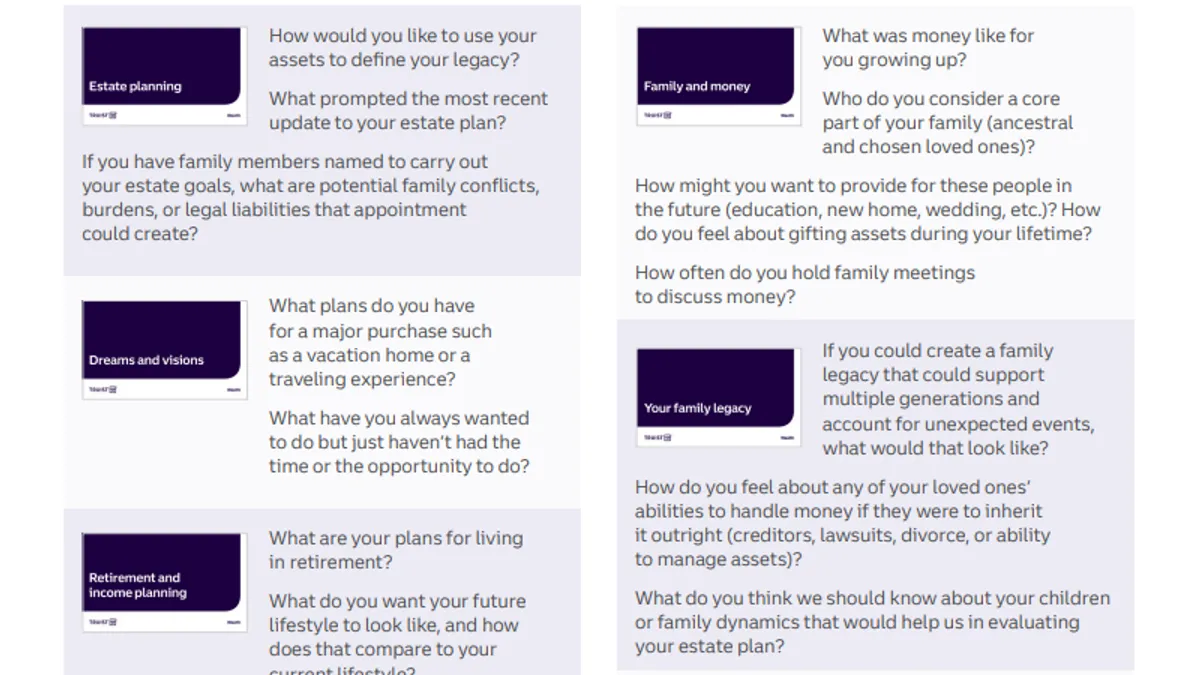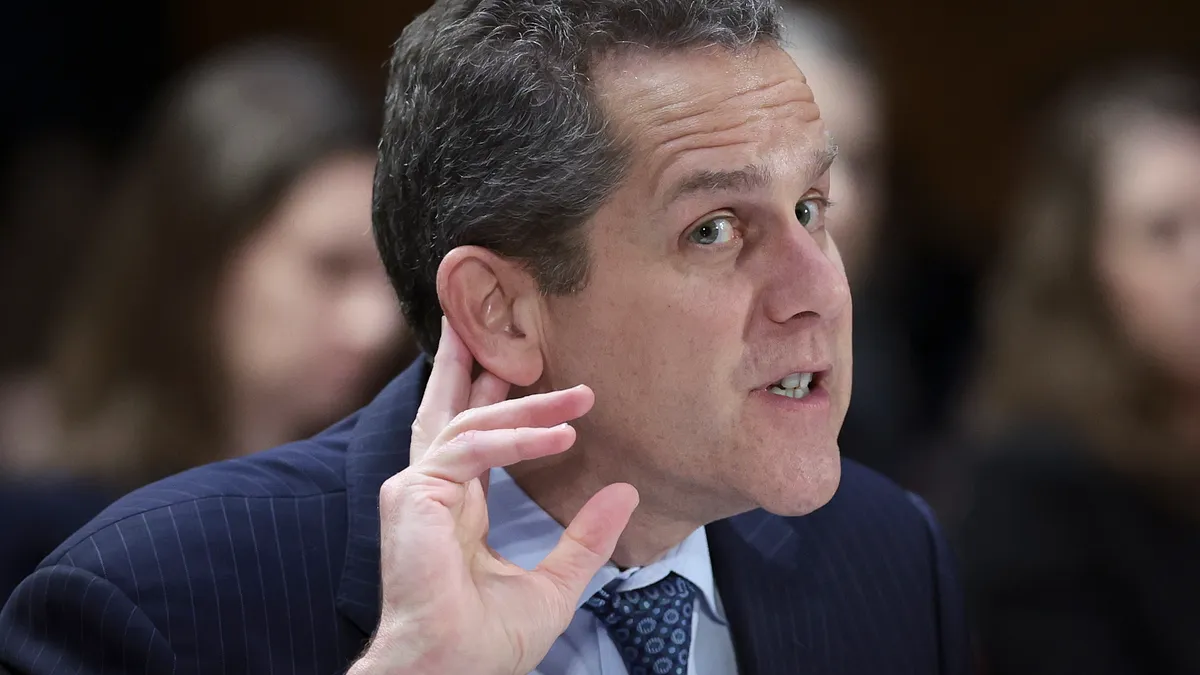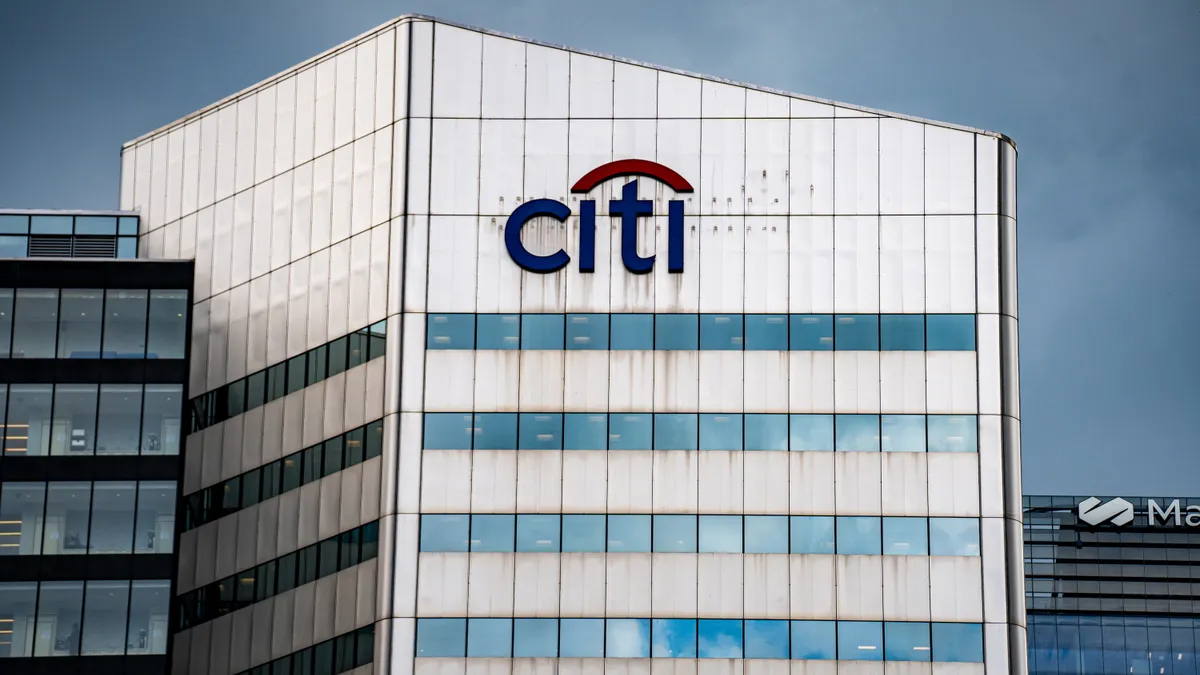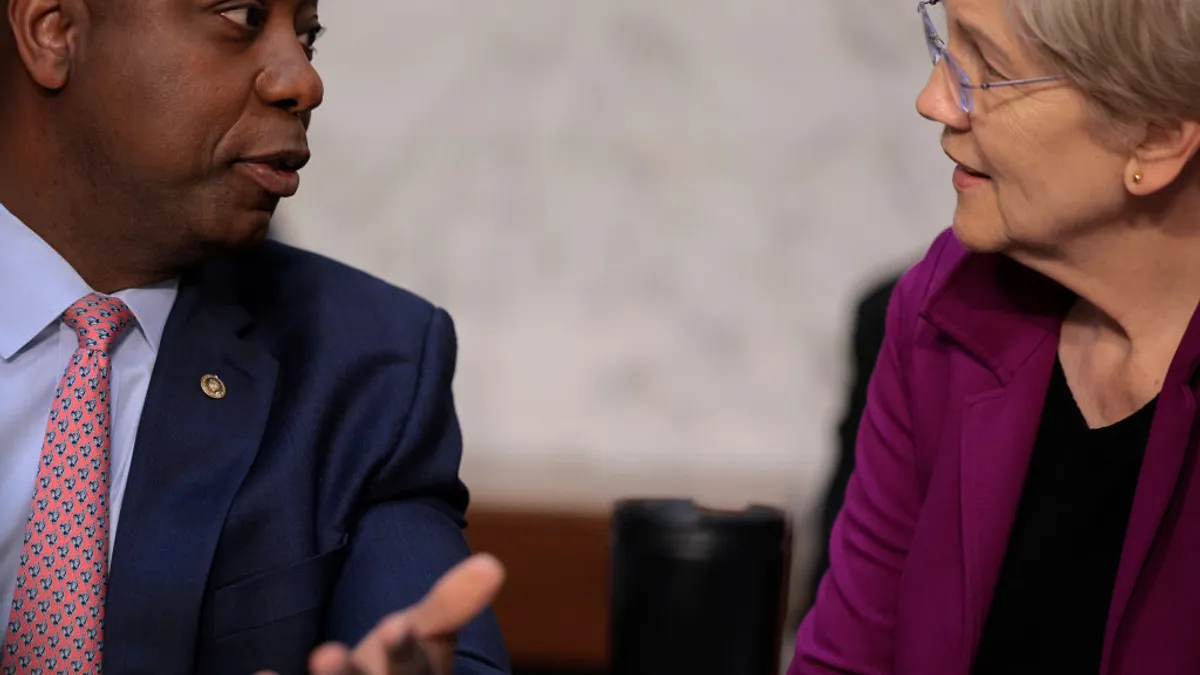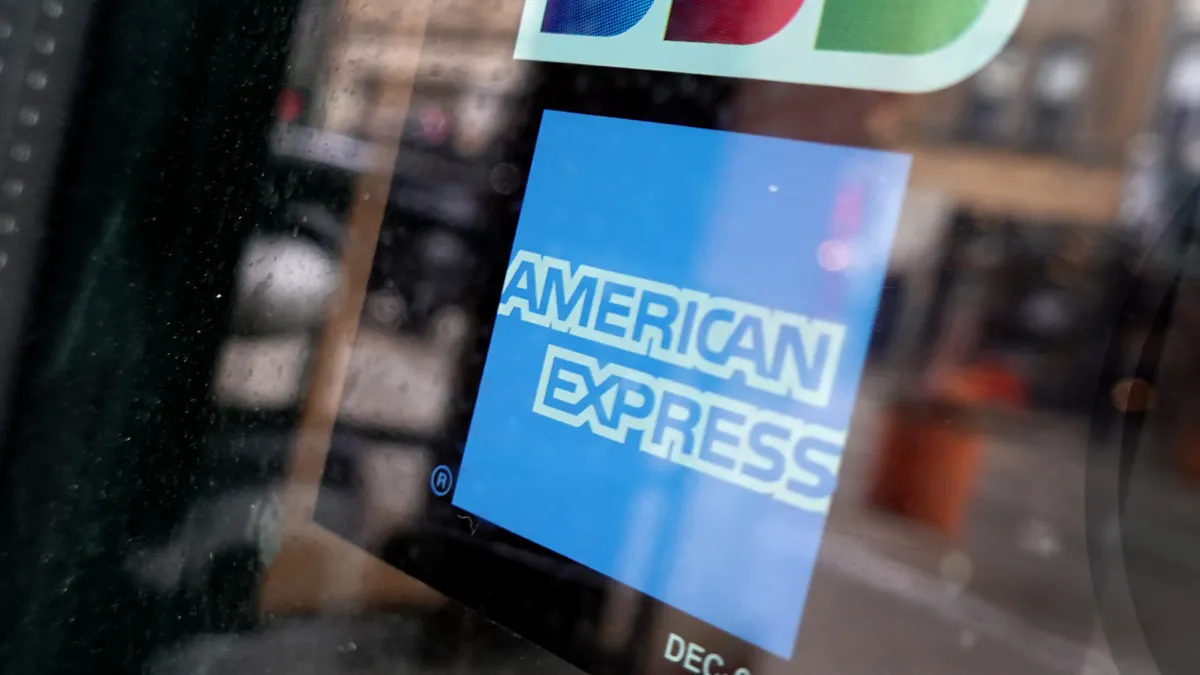Small business lender Funding Circle will sell its U.S. business to iBusiness Funding, a subsidiary of Ready Capital and a 7(a) lender, in a share purchase agreement valued at £33 million (approximately $42 million), the company announced Monday.
The London-based company has returned its Small Business Lending Company license that it received in April as a part of the deal, which is expected to close by the end of this month, the statement noted. Ready Capital already has an SBLC license.
“The good news is that Funding Circle’s US business gets to do exactly what we planned to do all along, which is become the number one [Small Business Administration] lender for loans under $500,000. The only difference now is that we're going to do it under iBusiness and Ready Cap’s balance sheet and license versus using our own license,” Funding Circle U.S. spokesperson Ryan Metcalf told Banking Dive.
“When [iBusiness] came in, what they realized is – what we built is a best in class, end-to-end loan origination servicing platform for customers and for community banks. So, it's going to fit in perfectly with their strategy,” he added.
Though Funding Circle could have issued the loans as it had intended earlier, it chose not to because the company did not want to complicate the transaction process, Metcalf pointed out.
“Once you take on SBA loans, you would have to get SBA approval to sell them. You'd have to find a buyer to offload them. So [Funding Circle] chose not to make any loans until the deal was closed,” he noted.
The U.S. unit will operate under its current name for at least six months, after which Funding Circle U.S. will eventually transition to operating under iBusiness Funding. Executives of both companies are trying to ensure a smooth transition without disrupting customer interaction, according to Metcalf .
iBusiness Funding was one of the companies in talks to buy Funding Circle’s U.S. unit when its CEO Lisa Jacobs said in March that it was considering offloading its U.S. counterpart to streamline its operations. According to a recent filing at the London Stock Exchange, Funding Circle revealed its plans to cull 120 roles within its workforce in an effort to curb costs.
“In March, I announced that we were simplifying the business by exiting the US and focusing on profitable growth in the UK business. Alongside the UK restructuring actions announced in May, we are continuing to execute against this plan with the sale of the US business to IBF,” Jacobs said in a statement Monday.
Funding Circle’s U.K. business is on track to be profitable in the second half of the year, Jacobs noted. The fintech's U.S. unit reported a statutory profit before tax of £7 million for 2023 but contributed an overall loss of £23 million to the group's results.
iBusiness Funding has processed over $7 billion in SBA loans, and the team processes more than 1,000 business loan applications through its platform daily, the company noted.
“We're excited to acquire FC USA and expect the acquisition to yield meaningful revenue and earnings to the combined company in the years to come,” Ready Capital CEO Thomas Capasse said in a prepared statement.
SBLC license debate
Funding Circle’s recent move can be seen as a setback for SBA administrator Isabel Casillas Guzman, who was instrumental in approving Funding Circle’s SBLC license for 7(a) lending.
Despite strong opposition from lawmakers and critics of the SBLC license, the SBA went ahead to lift the 40-year moratorium on nondepository small business development companies in April 2023. In November, Arkansas Capital Corporation, Alaska Growth Capital BIDCO, Inc., and Funding Circle were granted the SBLC license, increasing the number from 14 to 17.
Funding Circle received its SBLC license on April 1, nearly four months after the SBA said it would issue the license. However, soon after Republican lawmakers called on the agency to rescind the fintech’s SBLC license, shedding doubt on SBA’s capacity to serve as a regulator for additional SBLCs and drawing attention to Funding Circle’s intention to shift focus to its more profitable U.K. business and sell off its U.S. subsidiary since the company was trying to address operating losses — an assertion the company has refuted time and again.
“We sold the business, and we had said publicly that we never intended to sell the license…and so we stuck to our word,” Metcalf said.
He added that Funding Circle did not have to surrender the license, but they chose to do so because their plan was never to sell it but to use it for 7(a) lending.
“If we had sold to a business that didn't have a license, technically, the license would have gone with it, but that's not the course that we took. So, I hope that the SBA will reissue the license to another lender because I think more competition is better for the market,” Metcalf noted.
Meanwhile, Senate Small Business and Entrepreneurship Committee Ranking Member Joni Ernst, R-IA, and House Small Business Committee Chairman Roger Williams, R-TX, who sent a letter demanding the revocation of Funding Circle’s SBLC license, were pleased with the fintech’s decision to hand over the license but expressed concerns over how it got one.
“As we have been saying from the moment it was announced, Funding Circle should never have received an SBLC license from the SBA. We are pleased to see this license returned to the SBA, but remain concerned about how a company with such a weak financial position was granted a license in the first place,” the lawmakers said in a statement on Tuesday. “We will continue to monitor any participation from Funding Circle in SBA lending and the 7(a) loan program due to this administration's risky underwriting changes that could put taxpayers on the hook for unprecedented losses.”
The SBA, for its part, said that it will continue to explore options to increase competition in the field and ensure that small business lenders get the best deal available when they seek capital. The agency might award additional SBLC licenses to achieve this goal.
“The SBA remains committed to exploring opportunities to increase competition and expand lending options to ensure a level playing field for small business owners,” an SBA spokesperson told Banking Dive via email Wednesday.
Lessons learned
Over the past ten years, Funding Circle has created a “unique niche” in the market and scaled in certain business segments, according to Metcalf. The SBA program is the answer to small-dollar lending, as low as $50,000, which the fintech could profit from if it had the guarantee, he highlighted.
Metcalf started working on the SBLC four years ago and, in hindsight, feels that pushing to get the SBLC license was worthwhile. First, Funding Circle had to convince the SBA to lift the moratorium on licensing, and second, it had to modernize the program rules to work how the private market works today — both of which were accomplished, he said.
Funding Circle’s change in strategy was revealed a couple of days before the March 7 announcement when the board decided to entertain a U.S. acquisition.
However, if he had to counsel anyone who wants to go for SBLC licensing today, he would recommend buying an existing one to “bypass the political mudslinging and drama that occurred in Congress,” but added that he is proud of the Biden-Harris administration for taking on the banking lobby.
“Not an easy thing to do, but it was in the best interest of the industry and small businesses. So, for that, I'm still proud. I feel like we fought the good fight,” Metcalf said.



